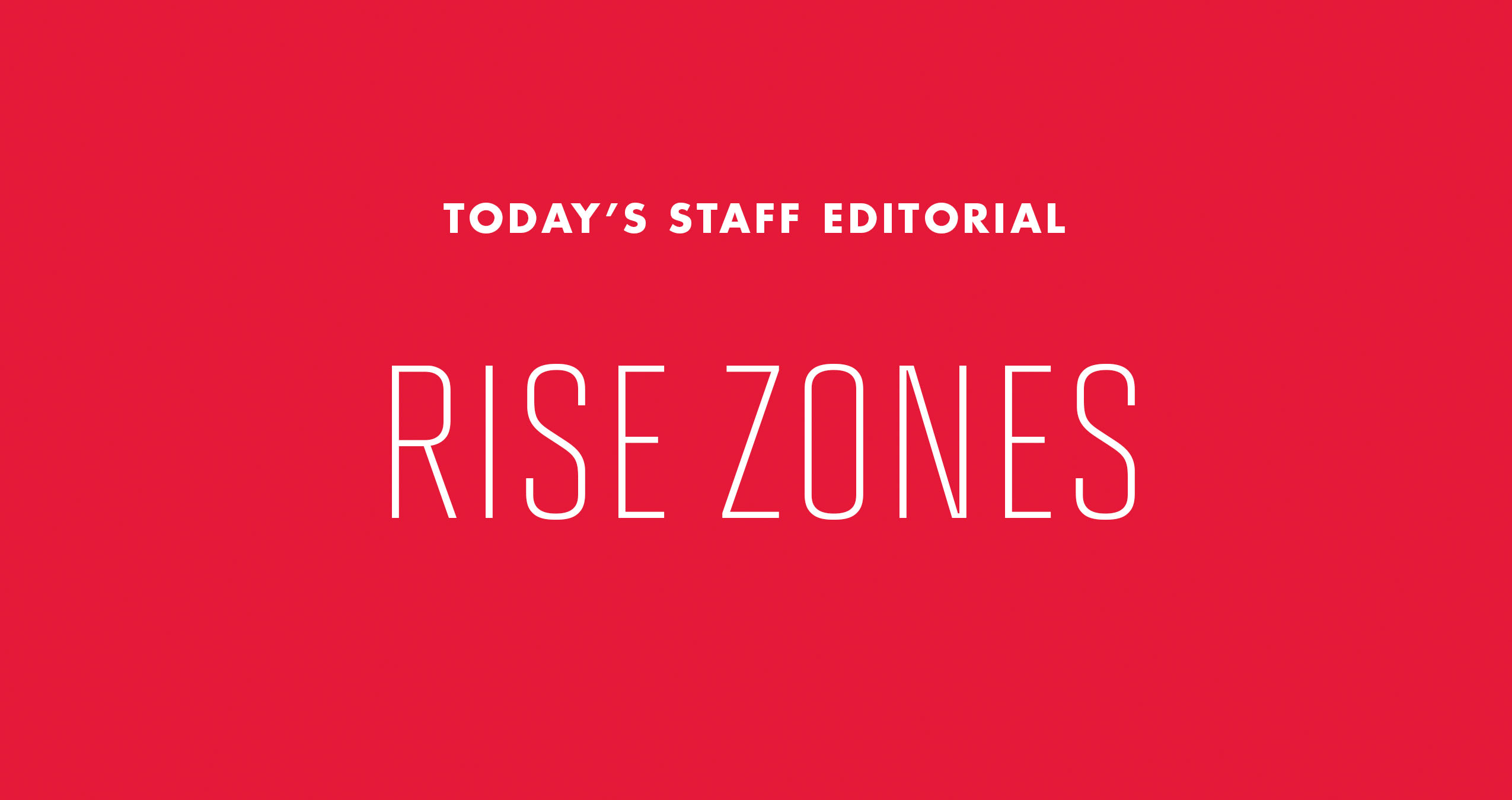As the City Council and this university continue to revitalize downtown College Park, a central hurdle on the track to a more vibrant and economically diverse community lies with drawing new corporations to the area.
To that end, the university already announced in June that it will lease land to battery developer FlexEl — a homegrown firm launched as a university startup — to expand its operation. The Hotel at the University of Maryland is slated to open in early 2017, and the university has proposed an “innovation district” combining university housing, market-rate apartments, retail, offices and laboratories on both sides of Route 1 near Ritchie Coliseum.
University President Wallace Loh has promised that more economic development is on the way, and with what we’ve seen over the past few years, there’s no reason not to believe him.
Now, a proposed Regional Institution Strategic Enterprise Zone could court more startups like FlexEl and other larger corporations downtown, an area traditionally dominated by Route 1 eateries, watering holes and small businesses. Retailers, restaurants and STEM firms exist comfortably side by side in the nation’s top college towns, and for College Park to join their ranks, it’ll need to add to its roster of startups and established companies with facilities in the city.
That’s where the RISE Zone comes in, should the university, the City Council, Prince George’s County and Riverdale Park agree on its boundaries and apply for the designation with the state’s Department of Commerce.
Businesses located in RISE Zones can earn property tax credits of at least 50 percent in the first taxable year after the calendar year they become a qualified property and at least 10 percent in years two through five. They’re eligible for income tax credits and priority consideration for financial assistance from some state programs as well.
The university has proven itself more than capable of fostering successful startups through a variety of incubators — FlexEl, for instance, won the Maryland Incubator Company of the Year in 2010 — and has played a major role in the state economy. With the RISE Zone, the city, the university and other stakeholders have an opportunity to bring some of that innovation back home to College Park.
They’ve already laid some of the groundwork. The commerce department approved the university as a qualified institution in September, so most obstacles the city and university face from this point forward likely will be self-imposed.
Concerns over the size of the zone and an initial downtick in property and income tax revenue are viable, and the council and the university should hash those out at length before proceeding with the application. However, the potential to raise the city’s profile and diversify its economy should outweigh these qualms.
It’s an exciting time to live and work in College Park, and with the RISE Zone, the city can keep building itself into a top-tier college town that’s a hub for students, long-term residents and businesses alike.



